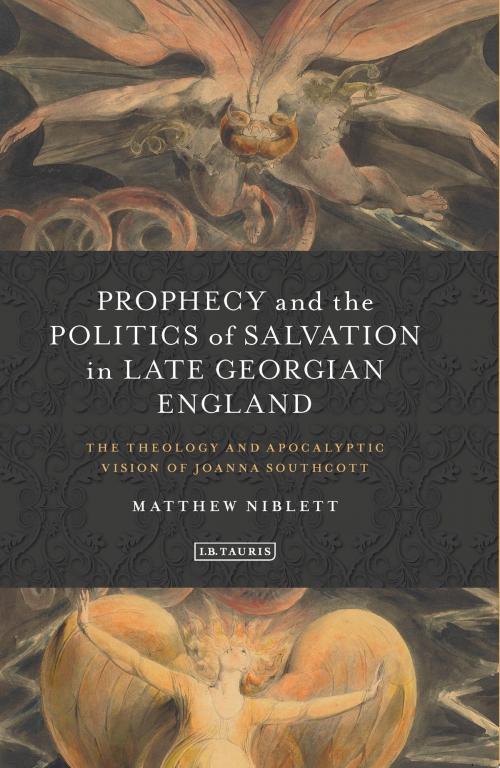Prophecy and the Politics of Salvation in Late Georgian England
The Theology and Apocalyptic Vision of Joanna Southcott
Nonfiction, Social & Cultural Studies, Political Science, Social Science, History| Author: | Matthew Niblett | ISBN: | 9780857737151 |
| Publisher: | Bloomsbury Publishing | Publication: | July 23, 2015 |
| Imprint: | I.B. Tauris | Language: | English |
| Author: | Matthew Niblett |
| ISBN: | 9780857737151 |
| Publisher: | Bloomsbury Publishing |
| Publication: | July 23, 2015 |
| Imprint: | I.B. Tauris |
| Language: | English |
Joanna Southcott (1750 – 1814) remains one of the most significant and extraordinary religious figures of her era. In an age of reason and enlightenment, her apocalyptic prophecies attracted tens of thousands of followers, and she captured international attention with her promise to bear a divine child. In this new intellectual biography Matthew Niblett unravels Southcott's writings, her context and her message to demonstrate why the prophetess was such a magnetic figure and to highlight the significance of her role in British religious history. Using a wide range of contemporary sources, this revealing study explains the formation of Southcott's apocalyptic theology, her treatment of the Bible, her relation with the Church, the network of clerical supporters she used and the striking originality of her message. In so doing, this book shines fresh light on religion and the politics of salvation in late Georgian England.
Joanna Southcott (1750 – 1814) remains one of the most significant and extraordinary religious figures of her era. In an age of reason and enlightenment, her apocalyptic prophecies attracted tens of thousands of followers, and she captured international attention with her promise to bear a divine child. In this new intellectual biography Matthew Niblett unravels Southcott's writings, her context and her message to demonstrate why the prophetess was such a magnetic figure and to highlight the significance of her role in British religious history. Using a wide range of contemporary sources, this revealing study explains the formation of Southcott's apocalyptic theology, her treatment of the Bible, her relation with the Church, the network of clerical supporters she used and the striking originality of her message. In so doing, this book shines fresh light on religion and the politics of salvation in late Georgian England.















